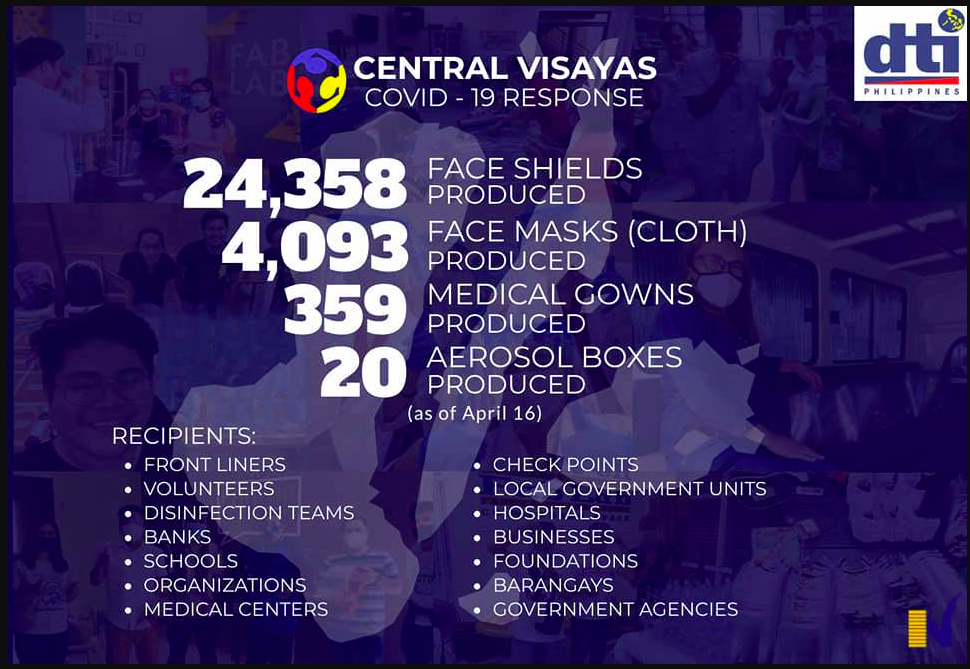
These are the total number of face shields, cloth face masks that the fabrication laboratories (Fablabs) of the Department of Trade and Industry made for the frontliners. | DTI website
CEBU CITY, Philippines—The Department of Trade and Industry in Central Visayas has mobilized its network of fabrication laboratories (FabLabs) to produce personal protective equipment (PPEs) for frontliners involved in the fight against the coronavirus disease 2019 (COVID-19).
The DTI has set up FabLabs primarily to help start-up companies and would be entrepreneurs for product development and to make prototypes of new products and inventions.
However, the FabLabs found another purpose for its existence when the coronavirus 2019 outbreak occurred.
Read more: More face shields for medical frontliners being made in FabLab Bohol
A team of volunteers, faculty members and staff at school based FabLabs in the region have designed and produced personal protective equipment to contribute to the much-needed supply of PPEs in the region
“As of April 16 this year, FabLabs in Central Visayas have produced 24,358 face shields, 4,093 cloth face masks, 359 medical gowns, and 20 aerosol boxes,” according to DTI-7 in a news release posted on its Facebook page.
Read more: School in Cebu develops face shield for health frontliners
The FabLabs, in coordination with their stakeholders and partners in both government and private sectors, responded to the needs of the frontliners, the DTI noted.
“Overall, FabLabs in the Philippines produced 46,055 face shields, 23,104 cloth face masks, 1,201 medical gowns, and 217 aerosol boxes as of April 16,” said Maria Elena Arbon, DTI-7 assistant regional director and the country’s FabLab champion.
The production of the PPEs was made possible after DTI Assistant Secretary Asteria Caberte pushed for the funding of the project while boosting the morale of volunteers.
According to Caberte, the FabLabs were not the only ones responding to the COVID-19 crisis.
Read more: DTI mobilizes fablabs to surmount COVID crisis
“We have DTI-assisted MSMEs such as Uniform Solutions, Tubigon Loomweavers Multi–purpose Cooperative, LAMAC Multi-purpose Cooperative and Alter to Enhance Clothier that are also mass producing cloth face masks, she said.
These cooperatives and business enterprises had repurposed their manufacturing capacity to meet local demand, Caberte explained.
“We have always encouraged those we have assisted to exercise their corporate responsibility and give back to the community in whatever way they can,” she added./dbs

